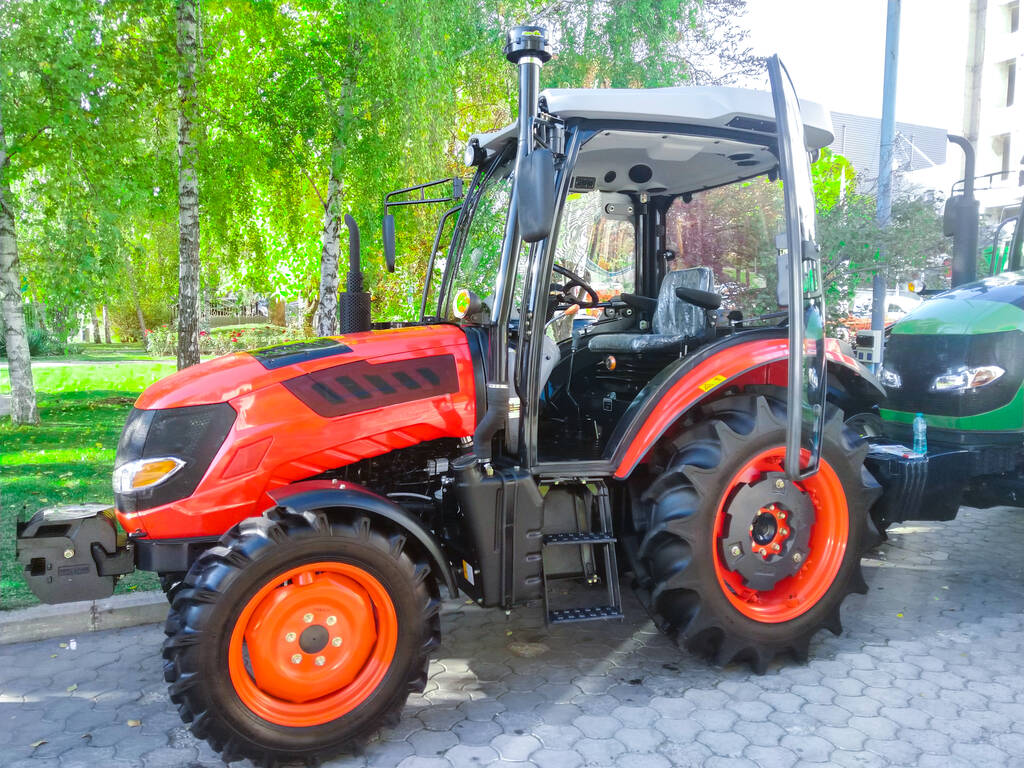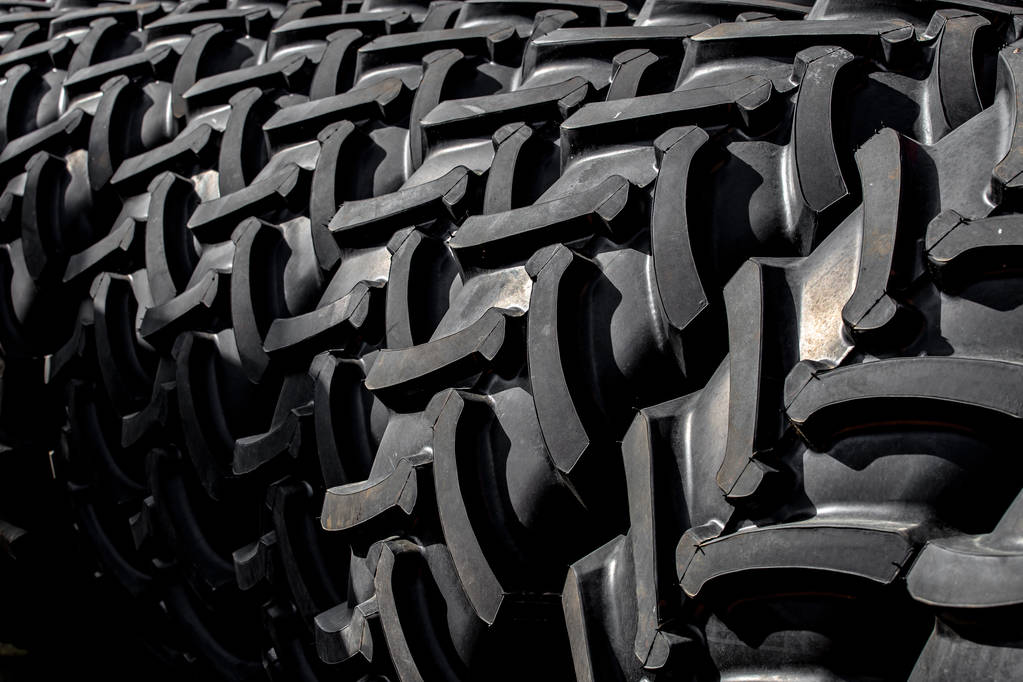In the realm of modern agriculture, tractors have become indispensable assets, revolutionizing the way farmers cultivate their lands and increasing productivity manifold. While the tractor itself is the primary workhorse, its effectiveness depends largely on one crucial component: the tractor tire. These seemingly simple yet technologically advanced wheels play a pivotal role in enhancing agricultural performance, reducing soil compaction, and ultimately ensuring food security.

In this article, we’ll delve into the world of tractor tires, exploring their significance, design, types, and how they contribute to the agricultural sector’s efficiency and sustainability.
Importance of Tractor Tires
Tractor tires are a farmer’s best ally, providing the necessary traction and grip needed to plow through the fields, sow seeds, and harvest crops. They bear the weight of heavy machinery and efficiently transmit power to the ground. The proper selection of tractor tires can significantly impact soil compaction, fuel efficiency, and overall agricultural productivity.
Design and Composition
Modern tractor tires are engineered using advanced technology, combining durability, flexibility, and resilience. They consist of several key components:
- Tread: The tread is the outermost layer that comes into direct contact with the ground. It is designed to provide maximum traction and minimize slippage, particularly on muddy or uneven terrain.
- Sidewalls: These are the vertical sections that connect the tread to the innermost part of the tire. The sidewalls play a vital role in absorbing shocks and maintaining the tire’s shape and integrity.
- Bead: The bead is the reinforced section that anchors the tire to the rim. It ensures a secure fit, preventing the tire from slipping off during heavy loads or sharp turns.
- Belts: Most modern tractor tires have steel belts placed beneath the tread to add strength, stability, and puncture resistance.
Types of Tractor Tires
- Bias Ply Tires: Bias ply tires are constructed with multiple layers of fabric that run diagonally from bead to bead. They offer excellent load-carrying capacity and are suitable for tractors used on rugged terrains. However, they can be less fuel-efficient and produce more soil compaction compared to radial tires.
- Radial Tires: Radial tires feature steel belts that run perpendicular to the tread. They are known for their flexibility, reduced soil compaction, and improved fuel efficiency. Radial tires also provide a more comfortable ride for the operator due to their better shock absorption.
- R-1 Tires: R-1 tires, also known as “agricultural tires,” are the most common choice for general farming operations. They have an aggressive tread pattern that delivers optimal traction in soft or wet soil conditions. R-1 tires are versatile and well-suited for plowing, tilling, and planting.
- R-2 Tires: Also called “Rice and Cane” tires, R-2 tires are specifically designed for working in rice paddies or sugarcane fields. They feature a wider tread design that reduces soil disturbance and compaction, making them ideal for wet and muddy terrains.
- R-3 Tires: R-3 tires, or “turf tires,” are engineered with shallow treads to minimize soil disruption. They are commonly used for turf management, golf courses, and orchards, where soil compaction and surface damage must be minimized.
Benefits of Advanced Tractor Tires
- Soil Conservation: Properly selected tractor tires can significantly reduce soil compaction. Soil compaction can negatively affect crop root growth and water infiltration, ultimately leading to reduced yields. Advanced tires distribute the tractor’s weight more evenly, lessening the impact on the soil.
- Increased Efficiency: Tires with better traction and reduced slippage enhance a tractor’s pulling power. This means that less fuel is required to achieve the same level of productivity, resulting in reduced operational costs and lower carbon emissions.
- Operator Comfort and Safety: Tractor tires with improved shock absorption and reduced vibrations contribute to the operator’s comfort and safety. Long hours spent driving heavy machinery can be physically demanding, but the right tires help alleviate operator fatigue.
- Sustainability: Modern tractor tires are designed with sustainability in mind. Lower fuel consumption and reduced soil compaction contribute to more sustainable agricultural practices, promoting environmental stewardship.

Tractor tires represent the very foundation of modern agricultural practices. Their evolution from simple rubber wheels to advanced engineering marvels has significantly impacted the agricultural sector’s efficiency and sustainability. The right choice of tractor tires can make the difference between a bountiful harvest and agricultural struggles. As technology continues to advance, it is likely that tractor tires will become even more efficient, environmentally friendly, and critical to securing food supplies for our growing global population. Farmers and agricultural experts must keep abreast of these developments to harness the full potential of these driving forces behind agriculture’s backbone.
Learn more at Wiki as well.
